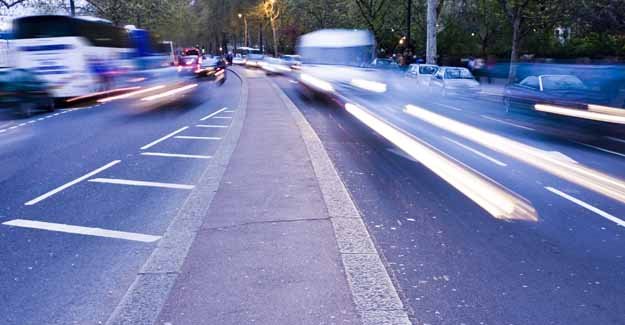A scheme to encourage the scrapping of old cars to increase the rate at which motorists trade them for newer, more fuel-efficient models, could achieve environmental benefits according to new research published today (17) by the Royal Automobile Club Foundation.
The report, Car Ownership in Great Britain*, concludes that financial encouragement for car owners to scrap older vehicles could encourage fleet renewal, but intervention must be done carefully if the vehicle market is not to be distorted. The report relates to use of vehicles but policy must also take account of the environmental implications involved in the manufacture of new vehicles.
The research shows that in the UK, to reduce emissions, the ideal age to incentivise car scrappage would be for 17-18 year old cars. Such a scheme would remove most of the last non-catalytic cars. Incentivising the scrappage of younger cars would only result in payment being made for cars which are going to be scrapped in large numbers anyway.
Encouraging motorists to switch to newer models is a vital part of the fight to cut carbon emissions from road transport. The average new car emits 3.8% less carbon than just 12 months ago (158.6g/km, down from 164.9g/km at the end of 2007) and 16.4% less than the in 1997 (189.8g/km)**.
Despite this, tax changes announced in the March budget, including the introduction of a “showroom tax,” will make buying a new vehicle more expensive. The Treasury’s decision to raise Vehicle Excise Duty retrospectively also increases the financial burden of owning the more fuel-hungry older cars, leaving motorists stuck with inefficient vehicles.
The credit crunch is also slowing the rate at which people buy new cars, with sales falling for the last five months***.
The RAC Foundation believes that a carefully-designed scrappage scheme would have a double benefit of boosting the new and second hand car industry, whilst helping to make road transport greener by removing the most-polluting vehicles from the road.
According to the report, cars are scrapped for four main reasons:-
· The car is too expensive to repair
· The car has been in an accident
· The car was not worth very much money
· The car had stopped working
Scrapped cars are not normally replaced by brand new models, but by vehicles typically three to four years younger than the ones scrapped. A vehicle purchased brand new typically replaces a three year old car which has been traded in on the basis of age and mileage. Most new cars are traded in within 4 years.
The Foundation commissioned the report after scrappage was recommended by the Environmental Audit Committee**** as a means of encouraging “lower income households … to trade in their cars for low emission replacements,” in order to offer an informed contribution to the debate.
Schemes can offer payments not linked to further action by the car owner, or payments conditional on purchase of a less-polluting newer car. The RAC Foundation’s report concludes that in the UK, it would not be necessary to link the incentive to buying a new car as the natural dynamics of the car market will lead to the owners buying a car three or four years younger than the one scrapped, which in turn would lead to a ripple effect of car purchases up the age chain of the vehicle parc.
The Foundation has rejected the alternatives of higher taxes on older cars, calculated on the basis of their emissions; or more rigorous annual inspection routines which make older cars more expensive to maintain, as these will place a heavier financial burden on the owners of older cars, who tend to be lower income motorists in the first place.
Commenting, RAC Foundation Director Stephen Glaister said: “Making it affordable for motorists to scrap clapped-out cars and opt instead for a cleaner, more fuel-efficient and more reliable vehicle could be a way for the Government to support greener motoring. This study identifies a number of countries that have tried scrappage schemes and offers important new evidence to help design a balanced and effective scheme for Britain. This is an essential ingredient of a proper “dust-to-dust” emissions assessment.”
“Motorists can’t afford to be on the receiving end of another muddled, poorly thought out scheme like the VED proposals unveiled in March. Any scrappage scheme should be further researched before implementation in order to benefit the environment, motorists and manufacturers, without distorting the market.”
ENDS
*  Car ownership in Great Britain.pdf (315.62 KB 17.10.2008 14:13) Prepared for the RAC Foundation by David Leibling.
Car ownership in Great Britain.pdf (315.62 KB 17.10.2008 14:13) Prepared for the RAC Foundation by David Leibling.
**SMMT, ninth annual sustainability report, 2008
*** SMMT figures reported in http://www.guardian.co.uk/business/2008/oct/06/automotive.creditcrunch
**** Vehicle Excise Duty as an Environmental Tax: “We recommend that the Treasury urgently reviews and consults on how lower income households could be economically supported to trade in their cars for low emission replacements. In particular, we recommend that the Treasury urgently examines the proposal for a “car scrappage scheme”, which would provide payments in return for taking high emission cars off the road. In any scheme that were implemented, it would be important to ensure that high emission vehicles were genuinely scrapped-with as much of their materials recycled as possible-rather than allowed to stay on the road under different ownership, for instance in another country. (Paragraph 38)”


